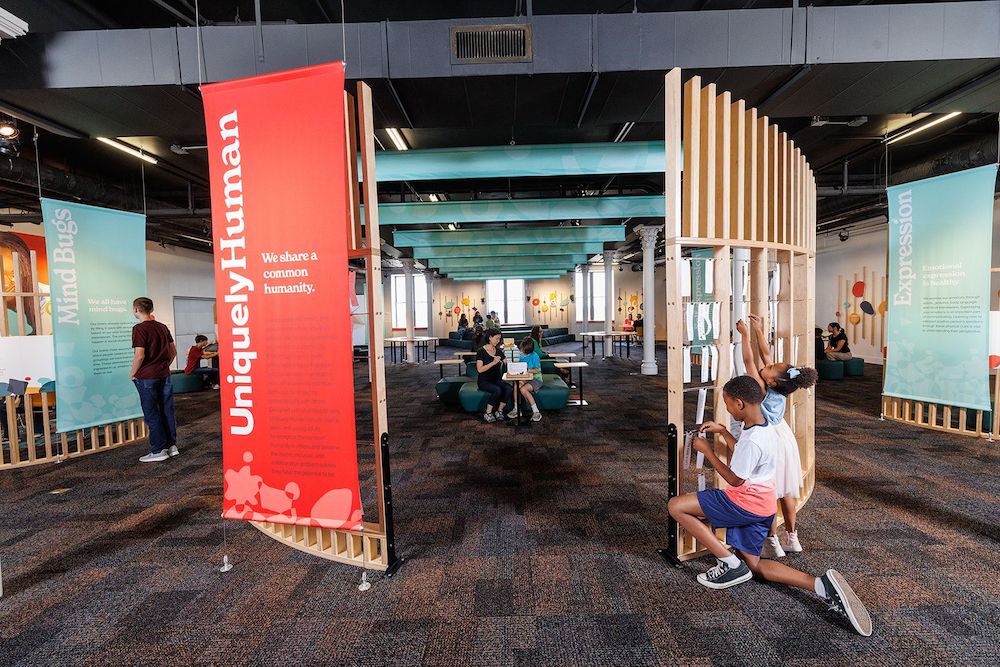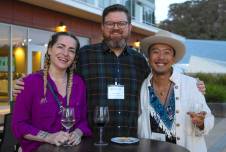The Greater Good Science Center’s three-year Intellectual Humility Project aimed to raise awareness of research on intellectual humility and its implications. As part of that, we supported 19 nonfiction, multimedia projects on intellectual humility, connecting grantees with scientific experts who guided them to relevant research and supported the scientific accuracy of their work. Today, we’re highlighting projects that received our support. Earlier, we shared podcast grant winners; now, we’d like to highlight articles, videos, and even a museum exhibit.
“Braver Voices: Spotlighting Intellectual Humility Across the Partisan Divide,” by Braver Angels. Through essays, videos, and podcast episodes, this project focused on multiple facets of intellectual humility that present themselves as obstacles to a functioning democratic society.
“Intellectual Humility Research-Based Journalism,” by The Conversation. These 15 stories focused on open-mindedness, curiosity, and humility. Here’s a sample:
- “Cognitive Biases and Brain Biology Help Explain Why Facts Don’t Change Minds,” by Keith M. Bellizzi
- “In the ‘Big Tent’ of Free Speech, Can You Be Too Open-Minded?,” by John Corvino
- “Teens Don’t Know Everything—And Those Who Acknowledge That Fact Are More Eager to Learn,” by Tenelle Porter
- “How Talking About Abortion Can Help Opposing Sides,” by Kate W. Isaacs
BrainCraft, by Vanessa Hill. This YouTube channel explores techniques to help you increase your intellectual humility.
“Stopping Culture Wars In Their Tracks: How One City Did It,” by Courtney Martin. This is a cover story for The Christian Science Monitor about a town in Ohio where an unlikely group of local leaders managed to reframe school board meeting debates in a way that centered the common good, pulling it back from the brink of total gridlock and even physical danger for the first-ever Black superintendent. She also wrote an analysis of why she approached the story the way she did for The Grade, which covers educational journalism.

“Uniquely Human,” by the Kentucky Science Center. This exhibit experience looks at the science of humanity—who we are, how we think, what we feel—and how that influences mental health, social interactions, identity, and equality. It invites the community to discover their unique selves while developing empathy and perspective for the broader humanity. Our project included signage within the Uniquely Human exhibit at Kentucky Science Center, a webpage with an intellectual humility conversation guide, a speaker event within the exhibit, and social media.
“Collaborating Across Cultures and Disciplines,” by Jane Palmer. This project consists of three separate features on intellectual and cultural humility for three different publications:
- “There’s a Real Upside to Knowing You Could Be Wrong,” Science News Explores
- “Engaged in Collaborative Research? Try a Touch of Intellectual Humility,” Nature
- “Advancing Indigenous Knowledge and Science Coproduction in the Arctic,” forthcoming in Eos.org.
In addition, there are two projects that have not yet appeared:
- Bruce Grierson’s essay “The Daughter Effect” will be published in a forthcoming issue of the Canadian magazine The Walrus. In it, he explores “the strange phenomenon of how having a daughter tends to make a father more politically progressive in a way that having a son does not.”
- Michael Shapiro and Ethan Watters are creating stories about how travel can foster intellectual humility.








Comments